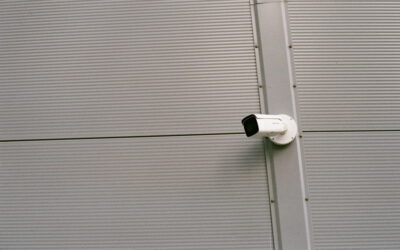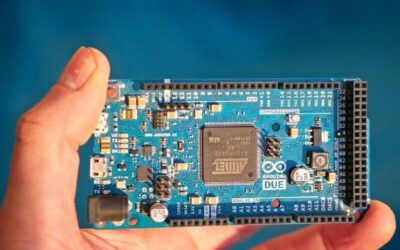How To Become An Electronic Engineer
During operations, any electronic equipment requires servicing and troubleshooting. All this is organized and controlled by an electronic engineer who takes a direct practical part. So How To Become An Electronic Engineer?
Recently you realized how it`s cool to understand the hardware. But you realized that you only saw the soldering iron in pictures. The words “resistor” and “transistor” don’t mean much to you either. You want something interesting: controllers, circuitry, and etc. And you have no problems with Physics. Where to start? What to read? What should you do to become an Electronic Engineer?
What Is Electronic Engineering
The profession of Electronic Engineer appeared quite a long time ago in the labor market. Often this specialty is chosen by people who can be called true fans of activities in the field of electronics. It is among the most popular as it implies the possibility of engaging in scientific activities.
Electronic engineer is engaged in the development, installation, commissioning, and launch of electronic equipment. The profession is suitable for those who are interested in physics, mathematics, and computer science.
Further uninterrupted operation and correct operation of electronic equipment are also provided by an electronic engineer.
The profession of an electronic engineer is classified into specializations in the following areas of activity :
- system engineering;
- circuit design;
- design.
System engineering specialties are designed to think broadly, to show a systematic approach to solving problems of radio electronics. A system technician is engaged in designing an entire system of electronic equipment with specified parameters, without delving into the structure of individual devices.
The circuit engineer, on the contrary, understands the structure of individual devices in detail and is engaged in designing subsystems with certain characteristics, that is, solves specific local problems. He is not concerned with the issue of integrated use of the device developed by him.
Design engineers solve problems of optimizing circuit diagrams by creating more miniature devices. Their role also includes the solution of technical problems of cooling the working devices and the heat sink, the design of the housing of the electronic equipment.
Career Requirements
| Degree Level | Bachelor’s degree |
| Degree Name | Electronic engineering |
| Licensure | Obtaining licensure in the field may be preferred |
| Key Skills | Strong communication skills; attention to detail; the ability to work as part of a team; knowledge of how to design electronic components, converters, and circuitry; computer-aided drafting and design (CADD) skills |
| Median Salary (2020) | $77,130 (for electronic engineers) |
Features Of The Profession
In addition to the above-mentioned duties as an electronic engineer:
- prepares technical tasks and documentation, as well as instructions and guidelines for working with electronic equipment;
- provides technical advice and trains users or customers to work with electronic equipment.
The scope of duties of an electronic engineer depends on the place of work and its specialization. The position of an electronic engineer on job sites can be called in different ways: engineer-developer of REA (electronic equipment), engineer-developer of printed circuit boards, engineer-designer of electronic equipment.
Functional Responsibilities Of The Electronic Engineer:
- development of circuit diagrams and printed circuit boards;
- preparation of technical documentation;
- installation and testing of prototypes;
- start-up and adjustment of electronic equipment;
- production support and service;
- carrying out preventive and current repairs;
- ordering spare parts and accessories for equipment.
Pros And Cons Of The Profession
Pros
- The constant demand for the profession in the modern world and in the foreseeable future
- High level of remuneration
- Possibility of continuous professional development
Cons
- The world of electronic technology is dynamically updated so the electronic engineer needs to constantly be aware of all new products. This is rather a plus of the profession than a minus.
Where Electrical Engineer Can Work
- research and production associations for the development and production of electronic equipment;
- profile research institutes;
- service center;
- workshops for repairing electronic equipment.
Important Qualities
- analytical mindset;
- spatial imagination;
- broad outlook;
- initiative;
- striving to develop new knowledge and improve professional skills;
- continuous study of advanced Russian and foreign experience in the development, operation, and maintenance of electronic equipment;
- the meticulousness and thoroughness;
- patience;
- focus on results;
- accuracy;
- responsibility;
- orderliness.
Computer Professional Literacy:
Knowledge of special programs: CAD, Cadence (Capture CIS, PCB Editor, Layout, PSpice), Altium Designer (development of circuit diagrams, development of printed circuit boards, development of libraries), Protel DXP. Kompas 3D (development of ESCD documentation), TINA, LtSpice (circuit modeling).
Career Steps And Prospects
An electronic engineer can upgrade his professional level from category III to category I. In large government structures an electronic engineer can make a career as a chief production engineer.
Interesting Fact
In assembly shops for the production of microchips, an important quality of employees is good coordination and developing fine motor skills. Asian manufacturers perform a coordination test when hiring chip assemblers: they ask them to assemble small beads with chopsticks as quickly as possible.
Takeaways
In order to understand a wide range of issues, you need to study for a long time and accumulate experience.
Try to narrow down and define your tasks. But soldering (using a soldering iron) should be learned from simple schemes. Read scientific journals and make simple designs.
The main thing is to have a goal and to start!
Recent Posts
- What Is an Exoskeleton Suit?
- Where can you use an ultrasonic motor?
- Smart Camera: System That You Can Use for a Wide Variety of Purposes
- Why Is the Smart Toothbrush Better Than a Regular One?
- Microcontrollers: An Integral Part of Embedded Hardware
- Air Quality Monitoring System: Why It’s So Important in Modern Realities





